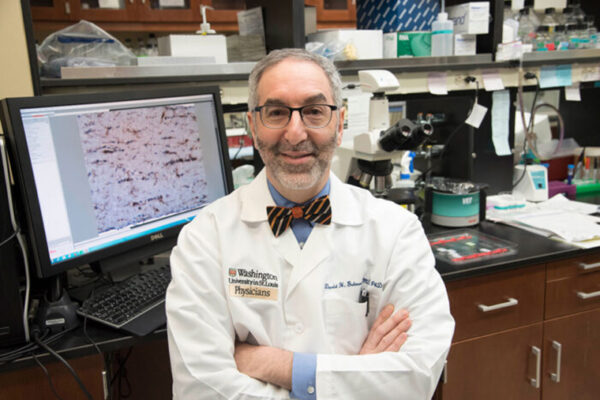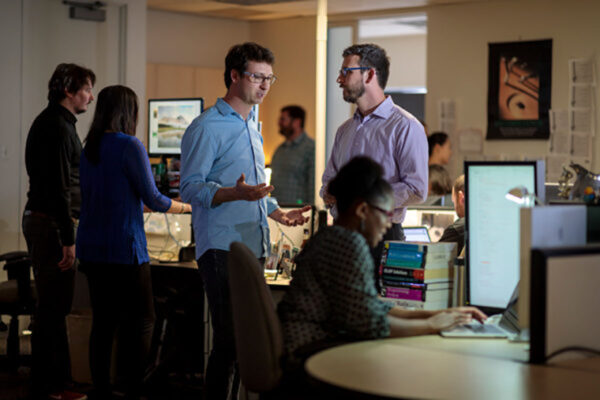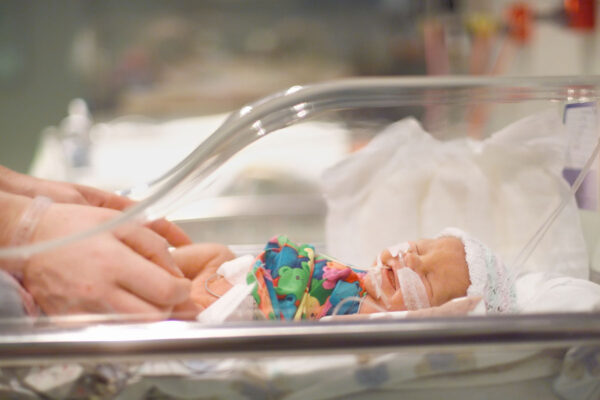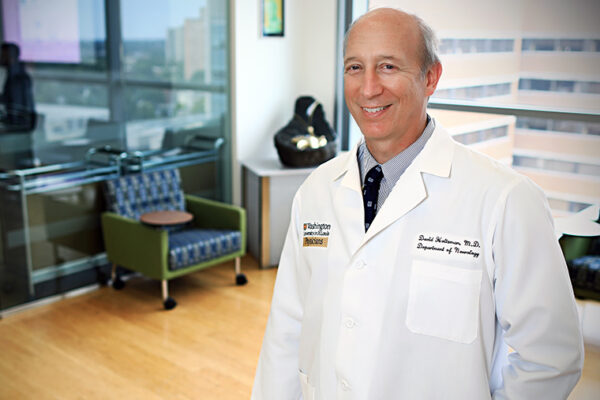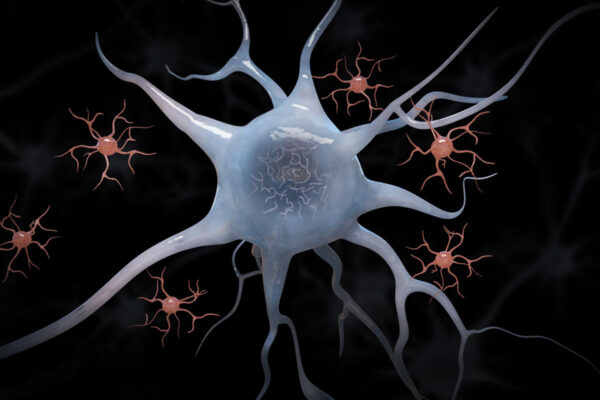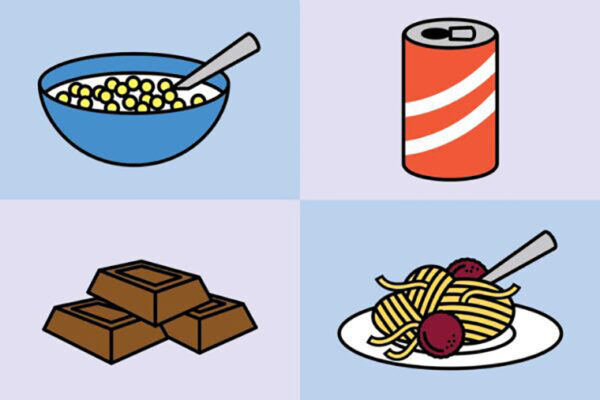Orthopedics names new executive vice chair, vice chairs
Regis J. O’Keefe, MD, PhD, the Fred C. Reynolds Professor and head of the Department of Orthopaedic Surgery, recently selected Charles Goldfarb, MD, as executive vice chair. Six other faculty members also were appointed to serve as vice chairs.
Training researchers to address mental health disparities
The National Institute on Minority Health and Health Disparities of the National Institutes of Health (NIH) has awarded researchers at Washington University in St. Louis a grant to train young scientists to recognize, investigate and work toward correcting disparities in access to mental health care in the U.S. and abroad.
$7.6 million funds center to fight cancer disparities in Missouri, Illinois
A grant from the National Cancer Institute of the National Institutes of Health (NIH) will fund the Implementation Science Center for Cancer Control at Washington University. The center’s aim will be to reduce cancer disparities in Missouri and central and southern Illinois.
Gutmann wins prestigious neuro-oncology prize
David H. Gutmann, MD, PhD, the Donald O. Schnuck Family Professor and vice chair for research affairs in the Department of Neurology at Washington University School of Medicine in St. Louis, has received the Abhijit Guha Award from the Society for Neuro-Oncology and the Section on Tumors of the American Association of Neurological Surgeons/Congress of Neurological Surgeons.
$3.7 million supports crowdsourced database of cancer genomics
Scientists at the School of Medicine have received a $3.7 million grant from the National Institutes of Health (NIH) to support an open-source database aimed at boosting personalized approaches to cancer treatment.
Drug reduces risk of pneumonia in newborn mice
Premature infants are at high risk of developing life-threatening lung infections, partly because their lungs are underdeveloped at birth. A new study from Washington University School of Medicine in St. Louis has found, in mice, that an inhaled drug promotes the development of lung immunity and reduces the risk of pneumonia.
Holtzman awarded Watanabe Prize in Translational Research
David Holtzman, MD, the Andrew B. and Gretchen P. Jones Professor at Washington University School of Medicine, has received the August M. Watanabe Prize in Translational Research from the Indiana Clinical and Translational Sciences Institute. He was recognized for his work uncovering the causes of Alzheimer’s disease and translating an understanding of its basic biology into potential therapies.
Targeting immune cells may be potential therapy for Alzheimer’s
A School of Medicine study has found that brain immune cells called microglia form the crucial link between protein clumping and brain damage. Suppressing such cells might prevent or delay the onset of dementia in people.
Atkinson awarded Presidential Gold Medal from rheumatology society
Physician-scientist and rheumatologist John P. Atkinson, MD, the Samuel B. Grant Professor of Medicine at Washington University School of Medicine in St. Louis, has been awarded the Presidential Gold Medal by the American College of Rheumatology.
Human gut microbes could make processed foods healthier
A new study from Washington University School of Medicine in St. Louis suggests the gut microbiome has an impact on how the body breaks down processed foods, such as cereals, pastas, chocolate and soda. The new knowledge could help in the development of healthier, more nutritious processed foods.
View More Stories



